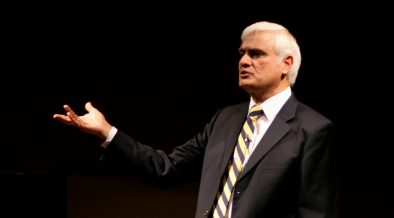
Christ at Hanukkah: Illuminating the Connection between the Feast of Dedication and Christmas in Christian Tradition
The New Testament contains a significant reference to Jesus participating in the Feast of Dedication, now known as Hanukkah, which is recorded in the Gospel of John. This occurrence presents deep theological implications for Christian traditions, especially in the context of celebrating Christmas. To fully understand the significance of this event, it’s important to examine the scriptural narrative and historical background.
John 10:22-23 says, “Then came the Feast of Dedication at Jerusalem. It was winter, and Jesus was in the temple courts walking in Solomon’s Colonnade.” This is the only direct reference to the Feast of Dedication (Hanukkah) in the New Testament and shows Jesus’ presence in the Temple during this Jewish festival.
The Feast of Dedication, or Hanukkah, commemorates the rededication of the Second Temple in Jerusalem during the second century B.C. after its desecration by the Syrian-Greeks. It is celebrated as a festival of lights, symbolizing the miracle of the menorah burning for eight days with only a day’s worth of oil.
The participation of Jesus in this festival has led some scholars and theologians to draw connections between Hanukkah’s themes of light and miracle and the Christian celebration of Christmas, which commemorates the birth of Jesus, seen as the Light of the World. This comparison underscores the shared heritage and common themes in Jewish and Christian traditions.
In contemporary Christian practices, this connection can be seen as reinforcing the idea of Jesus as a fulfiller of Old Testament prophecies and traditions, and as a figure who brings light and hope. The celebration of Christmas, therefore, gains an added dimension when viewed through the lens of Jesus’ participation in Jewish festivals like Hanukkah.
By exploring the scriptural and historical context of Jesus at the Feast of Dedication, Christians today can gain a deeper understanding of their own traditions, seeing them as part of a continuum of faith that stretches back through history, bridging the Old and New Testaments.
Further Exploration
The dating of Jesus at Solomon’s Colonnade at around 30 AD during winter time is crucial, as it situates Jesus’ presence at the Temple in the context of a key Jewish festival during a pivotal phase of his ministry. Early Church Fathers, such as Saint Augustine, often pondered over such events to delve into the deeper meanings of Jesus’ actions. In his reflections on the Gospel of John, Augustine highlights the significance of Jesus’ participation in Jewish festivals, interpreting it as a fulfillment of Jewish law and prophecy. He notes, “Our Lord, then, was walking in Solomon’s porch; teaching, no doubt, the people that were with Him,” thereby underscoring the teaching role of Jesus during such important Jewish observances because he would have had quite an audience.
This specific reference in John’s Gospel to Jesus at the Feast of Dedication during the winter of 30 AD becomes a critical link in understanding the relationship between Jewish traditions and Christian beliefs. This event’s temporal proximity to the later established period for celebrating Christmas is not merely coincidental but is seen by scholars as a symbolic intersection of themes of light – the Hanukkah menorah and Jesus as the “Light of the World.”
Thus, this verse not only documents a historical event but also serves as a theological connection point, bridging the Jewish and Christian narratives. It illustrates how Jesus’ life and actions, deeply rooted in Jewish tradition, were unfolding into a new religious paradigm that would encompass and extend beyond Jewish customs. This integration of historical context, cultural background, and theological interpretation enriches the understanding of the relationship between Hanukkah and Christmas in Christian traditions, illustrating their intertwined heritage.
Jesus’ Observance of Jewish Customs
A compelling example of Jesus’ engagement with Jewish customs is encapsulated in Luke 4:16. The scripture vividly narrates, “He went to Nazareth, where he had been brought up, and on the Sabbath day he went into the synagogue, as was his custom.” This passage not only highlights Jesus’ regular participation in the synagogue services but also emphasizes his deep-seated commitment to Jewish religious practices.
The Gospel of Luke, by underscoring Jesus’ routine involvement in such Jewish religious observances, complements the narrative in John’s Gospel about his presence at the Temple during Hanukkah. The Feast of Dedication, or Hanukkah, is not merely a historical commemoration of the rededication of the Second Temple; it also symbolizes Jewish perseverance and faith. Jesus’ participation in this festival, therefore, can be seen as a testament to his profound connection with his Jewish heritage and religious identity.
Early Church Fathers also recognized and commented on this aspect of Jesus’ life. Saint Jerome, for instance, in his commentaries, often emphasized Jesus’ Jewish roots and his fulfillment of Jewish law and prophecy. He interpreted Jesus’ actions, such as observing the Sabbath and participating in Jewish festivals, as a bridge between Jewish traditions and Christian teachings.
Thus, the New Testament’s portrayal of Jesus regularly observing Jewish customs, including the Sabbath as described in Luke and his presence at Jewish festivals like Hanukkah as noted in John, provides a rich tapestry of his life. It illustrates how Jesus was deeply embedded in the Jewish cultural and religious milieu. This understanding is crucial as it not only provides a historical and cultural context to Jesus’ life but also forms the basis of his teachings and actions, which are central to Christian belief and practice. These narratives, therefore, enhance our comprehension of the intertwined nature of Jewish traditions and Christian beliefs, as seen in the life and actions of Jesus Christ.
Hanukkah’s Significance and the Precedent for Christian Observances
Despite its absence from scriptural command, Jesus’ observance of Hanukkah, as detailed in the Gospel of John 10:22-23, carries significant implications. His participation in the Feast of Dedication at the Temple in Jerusalem, “Then came the Feast of Dedication at Jerusalem. It was winter, and Jesus was in the temple courts walking in Solomon’s Colonnade,” serves as an endorsement of the celebration’s importance and legitimacy.
This action by Jesus suggests a broader acceptance and validation of religious observances that, while not mandated in scripture, are deeply meaningful within God’s assembly of believers. It underlines the concept that commemorating significant religious events, even those not explicitly prescribed in scripture, can be a genuine and valid expression of faith.
In this context, the observance of Hanukkah by Jesus can be viewed as an affirmation of the value of historical and cultural traditions within religious practice. It indicates a recognition of the evolving nature of religious observance and the importance of commemorating events that now embody the Church’s values and history.
Therefore, the inclusion of Jesus’ participation in Hanukkah in the New Testament narrative serves not only as a historical account but also as a theological statement. It acknowledges the role of significant religious events outside the scriptural command in enriching and expressing faith. This further supports the decision by Early Church fathers to celebrate Christmas in honor of the incarnation of Christ.
The Celebration of Christmas in Early Christianity
In the early Church, the celebration of Christmas, much like the Jewish observance of Hanukkah, was deeply rooted in the desire to commemorate a foundational religious event. This observance was not just a remembrance of a historical moment but also a profound reflection on the theological mystery of the Incarnation, the belief in God becoming human in Jesus Christ. This celebration, particularly in the context of the 4th and 5th centuries, is seen as a response to the theological challenges of the time and served to deepen the understanding and expression of the Christian faith.
Saint Hippolytus of Rome, in his commentary on the Book of Daniel, identified December 25th as the birth date of Jesus: “For the first advent of our Lord in the flesh, when he was born in Bethlehem, was December 25th, a Wednesday, while Augustus was in his forty-second year…” This selection of the date was influenced by the “integral age” theory prevalent among early Christians, a belief that great prophets, including Jesus, were destined to die on the same calendar day as their birth. According to this theory, the date of Jesus’ death (around March 25th) would correspond to the date of his conception, leading to a birth date nine months later on December 25th. This approach was less about historical accuracy and more about aligning with theological symbolism and tradition.
The early Church Fathers, like Saint Augustine, emphasized the spiritual and theological importance of the Nativity. Augustine’s sermons on the Nativity beautifully articulate the mystery of the Incarnation: “He, through whom time was made, was made in time; and He, older than all things, was under time’s sway; He, who is boundless, was contained by small compass; He, who is immutable, was changed; He, who is invincible, was laid in a manger.”
Thus, the celebration of Christmas was an act of theological affirmation, much like the observance of Hanukkah in Judaism. Both festivals, though not mandated in the scriptures, offer a means to remember and celebrate pivotal moments in the timeline of faith. For Christians, Christmas became a time to reflect on and rejoice in the Incarnation, reinforcing the continuity and depth of their beliefs. This shared aspect of commemoration in both traditions highlights the importance of these celebrations in maintaining identity and continuity of faith, transcending the need for historical precision in favor of spiritual and communal significance.
Scriptural Support for Diverse Observances
In Romans 14:5-6, Paul addresses the diversity of practices within the Church regarding the observance of special days: “One person considers one day more sacred than another; another considers every day alike. Each of them should be fully convinced in their own mind. He who regards one day as special, does so to the Lord.” This passage underscores the importance of personal conviction in the observance of holy days. Just as the early Church Fathers chose to commemorate Christ’s birth on December 25th, aligning with the integral age theory and as a theological statement about the Incarnation, Paul’s words here affirm the legitimacy of such choices. The key, as Paul notes, is that whatever practice is adopted, it should be done with a full conviction of doing so in honor of the Lord.
Furthermore, Romans 14:1 extends this thought by encouraging a spirit of acceptance and understanding within the Christian community: “Accept the one whose faith is weak, without quarreling over disputable matters.” Paul’s advocacy for acceptance and peace in the observance of religious festivals is central to understanding the early Church’s approach to Christmas. Just as they embraced December 25th for the celebration of Jesus’ birth, this scriptural foundation suggests that the early Christians were encouraged to respect and accept varying practices and beliefs regarding such observances.
This perspective from Romans aligns with the previous discussions about Christmas and Hanukkah. Both festivals, while not mandated in scripture, were embraced by their respective communities as meaningful and significant observances. The scriptural guidance provided by Paul in Romans 14 reinforces the idea that the observance of such special days is a matter of personal conviction and communal unity, rather than rigid adherence to scriptural command. It reflects the early Church’s broader understanding of faith practice – an understanding that values the intention and devotion behind the observance as much as the observance itself. This approach fosters a spirit of respect for diversity within the Christian tradition, mirroring what Paul advocates in his epistle to the Romans.
Conclusion
In synthesizing the discussions surrounding the early Church’s celebration of Christmas, its theological foundations, and the scriptural support from Paul’s epistles, we see a clear validation of Christmas as a meaningful and legitimate practice for Christians. This validation gains further depth when viewed in the context of Jesus’ own observance of Hanukkah, a festival not mandated by scripture but deeply significant within the Jewish faith.
The early Church Fathers’ decision to mark December 25th as the celebration of Jesus’ birth, informed by the integral age theory and a desire to underscore the theological importance of the Incarnation, aligns with Paul’s teachings in Romans. Paul’s exhortation in Romans 14:5-6, “One person considers one day more sacred than another; another considers every day alike. Each of them should be fully convinced in their own mind. He who regards one day as special, does so to the Lord,” supports the idea that the observance of significant religious events, like Christmas, is a matter of personal conviction and devotion.
Furthermore, Romans 14:1, “Accept the one whose faith is weak, without quarreling over disputable matters,” encourages a spirit of peaceful acceptance of one another and understanding within the Christian community. This principle is crucial in contextualizing the observance of Christmas. It suggests that while Christmas may not have been a biblically mandated festival, its observance is a sincere expression of faith.
Just as Jesus’ participation in Hanukkah showed a deep respect for cultural and religious heritage, the celebration of Christmas by Christians is not merely a remembrance of a historical event but an affirmation of faith. It’s a time to reflect on the profound mystery of the Incarnation, where God became human in Jesus Christ. This observance, though rooted in a specific tradition, transcends historical and scriptural mandates, emphasizing a shared experience of faith and the expression of deeply held beliefs.
In conclusion, the celebration of Christmas, much like Hanukkah, embodies a broader principle when considering Church tradition. It highlights that observing significant faith events, even those not explicitly prescribed in scripture, is a meaningful way to honor God. This practice is a testament to the rich tapestry of religious observance and the depth of spiritual expression within the Christian tradition. It reinforces the continuity and depth of Christian beliefs, mirroring the respect and acceptance advocated by Paul, and reflects the dynamic nature of Church traditions as they evolve and adapt over time.
Bibliography
- The Holy Bible, New International Version. “John 10:22-23,” “Luke 4:16,” “Romans 14:5-6,” “Romans 14:1.”
- Skarsaune, Oskar: “In the Shadow of the Temple: Jewish Influences on Early Christianity.” This book offers insights into how early Christianity was influenced by Jewish traditions and practices.
- Josephus, Flavius. “Antiquities of the Jews,” for historical context on Hanukkah and Second Temple Judaism.
- Eusebius of Caesarea. “Church History,” for insights into early Christian practices and the celebration of Christmas.
- Bradshaw, Paul F. “The Origins of Feasts, Fasts, and Seasons in Early Christianity.” Liturgical Press, for an exploration of Christian liturgical traditions.
- Levine, Amy-Jill and Brettler, Marc Zvi. “The Jewish Annotated New Testament.” Oxford University Press, for a Jewish perspective on the New Testament and Jesus’ practices.
- Cohen, Shaye J.D.: “From the Maccabees to the Mishnah.” This work provides historical background on the period between the Old and New Testaments, including the events celebrated during Hanukkah.
- Raymond E. Brown: “The Gospel According to John (I-XII): Introduction, Translation, and Notes.” This commentary provides detailed analysis and interpretation of the Gospel of John, including Jesus’ participation in the Feast of Dedication.
- Rutledge, Fleming: “Advent: The Once and Future Coming of Jesus Christ.” This book explores Christian traditions of Advent and Christmas, linking them to Jewish festivals and prophecies.
- Harrington, Wilfrid J.: “John: Sacra Pagina Series, Vol 4.” A commentary on the Gospel of John that includes analysis of Jesus’ presence at the Feast of Dedication.
- Saint Augustine: “Tractates on the Gospel of John.” In these tractates, Augustine reflects deeply on the passages from the Gospel of John, providing insight into the theological significance of Jesus’ actions and teachings.
- Geza Vermes: “Jesus the Jew: A Historian’s Reading of the Gospels.” Vermes examines the life of Jesus within the Jewish tradition, providing an historical perspective on his teachings and actions.
- Saint Jerome: “Commentaries on the Gospel of Luke.” Jerome’s commentaries provide insights into the interpretation of Jesus’ actions in the context of Jewish traditions and Christian teachings.
- Joachim Jeremias: “Jerusalem in the Time of Jesus.” Jeremias’ research provides detailed insights into the cultural and religious setting of Jerusalem during Jesus’ time, which is essential for understanding his participation in Jewish customs.
- N.T. Wright: “Jesus and the Victory of God.” Wright’s work focuses on the historical Jesus and his role within Judaism, which includes his observance of Jewish customs and festivals.
- Hippolytus of Rome: “Commentary on the Book of Daniel.” This work by Hippolytus includes one of the earliest explicit mentions of December 25th as the birth date of Jesus.
- Saint Augustine: “Sermons on the Nativity.” Augustine’s sermons provide profound insights into the theological significance of the Incarnation and the celebration of Christmas.
- Thomas J. Talley: “The Origins of the Liturgical Year.” Talley’s work discusses the development of the Christian liturgical calendar, including the establishment of December 25th as the date of Christmas.
- Andrew McGowan: “How December 25 Became Christmas.” An article that delves into the history and reasoning behind the choice of December 25th for Christmas, discussing the integral age theory and other factors.











